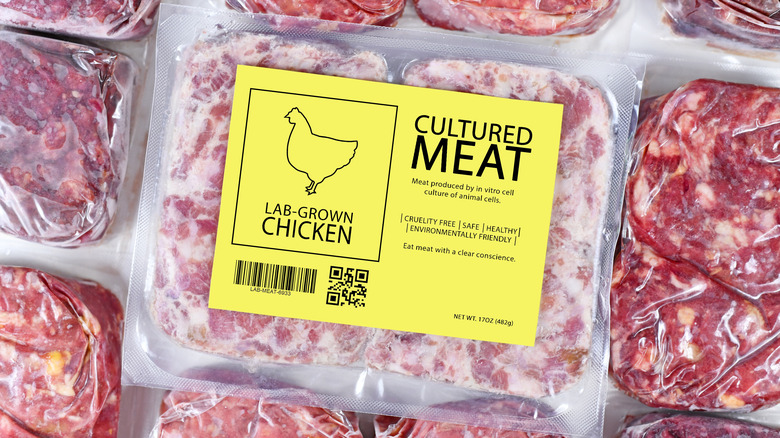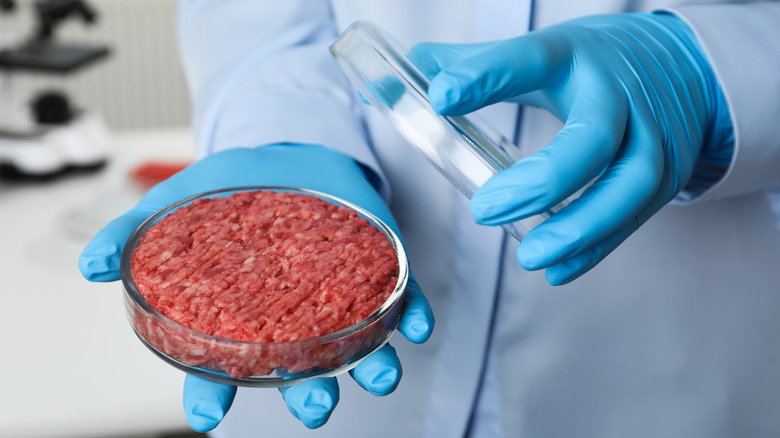A New Report Shows That Meat Alternative Companies Need Government Support To Truly Thrive
For many of us, meat makes its way into almost every meal. On average, Americans eat more meat than the vast majority of other nations. But there's a sizable contingent of Americans who are moving away from meat altogether. Some surveys suggest that as much as 10% of the country has opted to follow a plant-based diet of some kind.
As a response to the changing culture and its effect on consumer habits, the artificial meat market has exploded. In 2022, the FDA gave its first official seal of approval for cultivated meat. Additionally, several fast-food franchises have experimented with artificial meat items; folks have been able enjoy the Impossible Whopper since 2019.
All told, cultured meat products were valued at just under $247 million in 2022, and the sector is expected to continue its exponential growth in the upcoming years. However, recent evidence suggests that the artificial meat industry may need government intervention to achieve its full potential.
Funding fake meat could be the way of the future
Eating artificial meat is inarguably a better ecological decision than eating the genuine article. Livestock agriculture is an inefficient process that requires a lot of resources and produces a shocking amount of greenhouse gases. Furthermore, the excessive antibiotics in meat are linked to nearly 1 million deaths every year.
In October 2022, the Good Food Institute released a report highlighting the need to increase funding in the artificial meat sector. Over the course of the next few decades, the artificial meat market could potentially be worth $1 trillion in just a few decades. And this massive industry would bring with it nearly 10 million jobs. Government investments into the industry are currently in excess of $350 million, though financial support for faux meat companies varies wildly by country. Canada, for example, has invested more than $100 million into artificial protein, while the United States is hovering around a considerably smaller sum of $15 million. The Good Food Institute believes that increased government support for the artificial meat industry will allow fledgling companies to compete with long-standing factory farm titans.
The modern artificial meat industry would likely look quite different if it weren't for public sector funding. Construction recently began on the world's largest cultivated meat plant in Wilson, North Carolina. One North Carolina Fund, a discretionary job creation fund doled out by the North Carolina Governor's Office, gave the massive factory a $500,000 grant.

